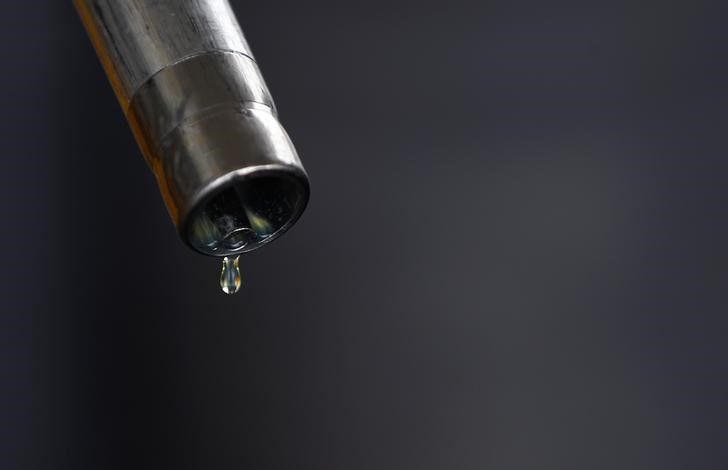By Shariq Khan
BENGALURU (Reuters) – Oil prices dropped by a dollar a barrel on Monday after weak economic data from China and expectations of another U.S. interest rate hike outweighed support from OPEC+ supply cuts that take effect this month.
fell $1.02, or 1.3%, to settle at $78.45 a barrel, while U.S. West Texas Intermediate (WTI) crude slid $1.12, or 1.5%, to settle at $75.66.
China’s manufacturing activity unexpectedly fell in April, official data showed on Sunday, the first contraction since December in the manufacturing purchasing managers’ index.
“The market is highly dependent on what happens to China, and the most real time news from the manufacturing sector was a disappointment,” said Third Bridge analyst Peter McNally.
China is expected to be the biggest factor driving oil demand growth this year, he added.
The U.S. Federal Reserve, which meets on May 2-3, is expected to increase interest rates by another 25 basis points. The U.S. dollar rose against a basket of currencies, making oil more expensive for other currency holders.
“We continue to be at the mercy of sentiment surrounding a Chinese recovery or the lack thereof, while the backdrop in the U.S. of ongoing monetary tightening leaves us in the ‘bad is good’ realm when it comes to economic data or newsflow,” said Kpler analyst Matt Smith.
Banking fears have weighed on oil in recent weeks and in what is the third major U.S. institution to fail in two months, U.S. regulators seized First Republic Bank (NYSE:) over the weekend ahead of a deal in which JPMorgan (NYSE:) bought most of its assets.
Voluntary output cuts of around 1.16 million barrels per day by members of the Organization of the Petroleum Exporting Countries and allies including Russia, a group known as OPEC+, take effect from May.
Oil prices drew some support from U.S. manufacturing activity pulling off a three-year low in April, as new orders improved slightly and employment rebounded.
“Crude prices are paring losses on optimism the economy can strengthen now that banking drama is behind us and on signs factory activity is improving,” said OANDA analyst Edward Moya.
Read the full article here




